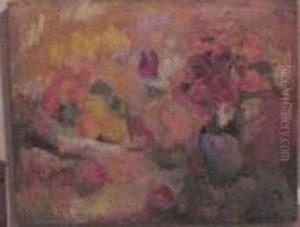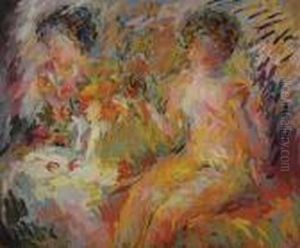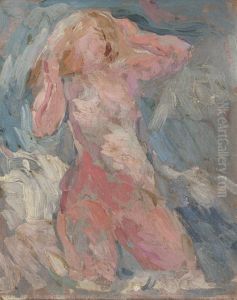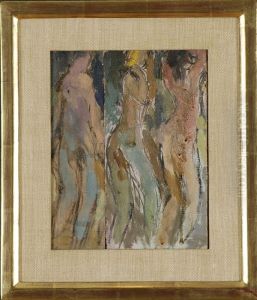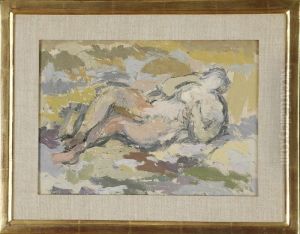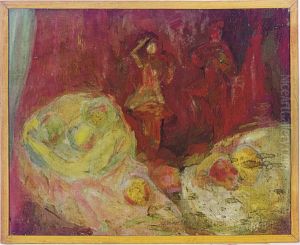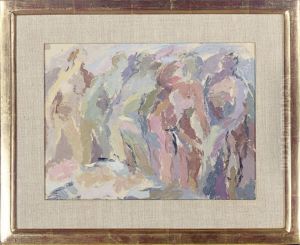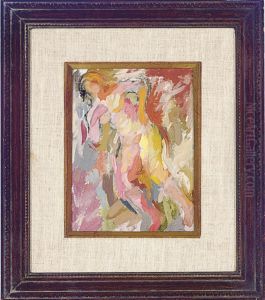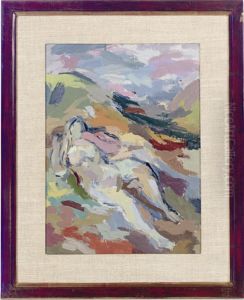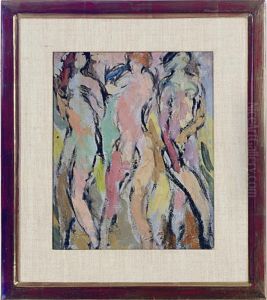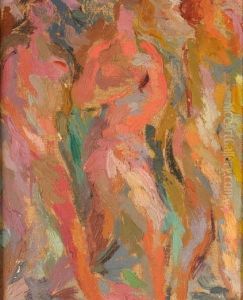Eugenie Baizerman Paintings
Eugenie Baizerman was a painter known for her contributions to the art world in the early 20th century. Born in 1899 in the Russian Empire, Baizerman's early life was marked by the turbulent historical events of her time, including the Russian Revolution. These events, along with her Jewish heritage, significantly impacted her personal life and artistic trajectory.
After emigrating to the United States, Baizerman settled in New York City, a burgeoning hub for artists and intellectuals from around the world. It was here that she became involved in the vibrant cultural scene of the 1920s and 1930s, meeting and interacting with a wide range of artists, writers, and thinkers. Her work during this period began to reflect a unique blend of her Russian roots and the modernist influences she encountered in her new home.
Baizerman's art is characterized by its expressive use of color and form. She was particularly noted for her landscapes and abstract compositions, which often explored themes of nature, emotion, and the human spirit. Her approach to painting was intuitive and free-flowing, allowing the colors and shapes on her canvas to evolve organically. This method set her apart from her contemporaries and highlighted her as a pioneer in the exploration of abstraction.
Despite facing challenges as a woman artist in a male-dominated field, Baizerman's work gradually gained recognition and respect. She exhibited her paintings in various galleries and shows, both nationally and internationally, earning acclaim for her vibrant palette and innovative techniques.
Eugenie Baizerman's career was unfortunately cut short when she passed away in 1949. However, her legacy lives on through her art, which continues to inspire and captivate audiences. Her contributions to the development of abstract art are particularly significant, as they helped pave the way for future generations of artists exploring similar themes and styles. Baizerman's life and work remain a testament to the power of art to transcend boundaries and express the depth of human experience.
